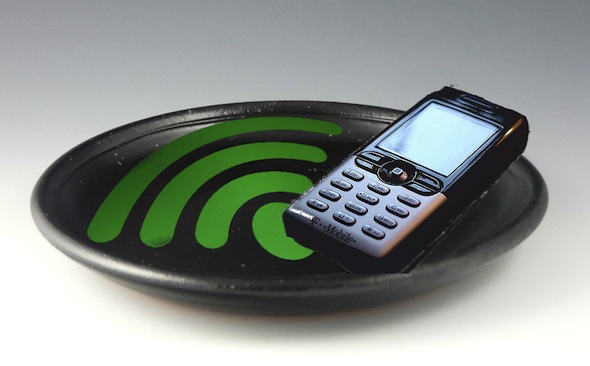Languages: Portuguese, French, Spanish, Arabic
Web We Want’s newsletter highlights one important topic and tells you what you need to know in 3 minutes or less.
What’s Going On?
There’s no such thing as free Internet. When your mobile operator offers you free data in some configuration, it means that either they or a content provider is footing the bill.
Why would they do this? Because they want to compete for your business, attention or personal info. Altruism can be a part of the equation too (don’t be so cynical!) since lowering the cost of Internet helps people with less money go online.
This is called zero-rating. Facebook’s Free Basics is one of the most famous and controversial examples, but nearly half of all mobile operators in the world now offer some form of zero-rated data plan or app that gives free access to services like Wikipedia, Whatsapp or Twitter.
Here’s the problem: offering free access to only parts of the Web sets a dangerous precedent for segmenting the Internet to consumers (eg. different content for different classes of consumers) which gives companies inordinate power to determine what we do online.
Already, many people think Facebook is the Internet. Others have no idea Facebook is on the Internet. How do we empower everyone to discover there’s more?
Who’s Doing Something?
Many governments have rules to protect “net neutrality” (eg. all content should be equal) which say that some forms of zero-rating violate the rights of consumers to access the open Web.
While most digital rights advocates agree that net neutrality is crucial to bridging digital divides, the question is whether it can co-exist with popular zero-rated services and increase competition between mobile operators, eventually lowering prices for all.
More research is needed to help us understand the threats and opportunities. For example, is zero-rating actually effective in creating new Internet users? The Alliance for Affordable Internet (A4AI) conducted an eight-country survey of 8,000 mobile Internet users, showing that only 1 in 10 people use zero-rating to access the Internet for the first time.
For the millions who wish to extend connectivity to the full Internet without paying, many new apps offer mobile data credits in exchange for ad views, app downloads, or even changing the ringtone to jingles. But some apps are privacy nightmares and log more personal information and behavior than users should be comfortable with (if only they knew).
Net neutrality advocacy is important to steering zero-rating and other mobile Internet ventures in the right direction, including privacy rights, says Chris Marsden from Sussex University in a study that examines zero-rating and net neutrality regulation in different countries.
In response to Free Basics, which has drawn scorn for lacking full Web access and privacy protections despite claiming to bring Internet to the people, we have seen constructive feedback from Andrew McLaughlin, Nanjira Sambuli and Steve Song.
What Can I Do?
- No matter what, the key to making Internet more affordable and universally available is to push your government for better ICT policies and commitments.
- Free public wifi is the preferred method of Internet access for people who can’t afford mobile data. Help make private and secure free wifi available wherever you can.
- Before you form an opinion on a zero-rated service like Free Basics, download the app and see for yourself what you think. That’s what our friend Nanjira did.
- Net neutrality battles in your country affect decisions in other countries too. Engage with local efforts to protect the open Web and seek informed decisions.



[…] [Source: No Such Thing As Free Internet (Zero-Rating Explained) | Web We Want] […]
https://tools.ietf.org/id/code.txt
[…] creure que la tecnologia és neutral, que no tenim res a amagar, que se’ns donen coses gratis, sense cap compromís. Finalment, la privacitat s’està tornant una preocupació global arreu del món, tot i que molta […]
[…] that technology is neutral, that we have nothing to hide, that free things are given to us without strings attached. Privacy is at last becoming a mainstream concern around the world, but many people feel its […]
excellent publish, very informative. I ponder why the opposite specialists of this sector do not realize this.
You must continue your writing. I’m sure, you have a huge
readers’ base already!
If you looking for a nice and super idea for hacking your favorite ISP. By hacking ISP what can you access? Woh shit, You get unlimited internet volume at no data charge. First of all, You just need to know the Basic knowledge of Hacking ISP For unlimited internet. When you gather it, Then try yourself. When you try to config it, You will never keep any data balance in your sim company. Thanks for your info.
Nowadays it is very popular in 2018. I have also interested it. Many people don’t know how its work. People are surprised to know that using free internet at any cost. I make a tutorial about basic knowledge on Hacking ISP. In Future, I will write down my personal blog about it. You can visit and gather knowledge about it. My first article is Basic Knowledge Hack ISP For Unlimited Internet that Actually Works ~ Hack ISP. A few days later I will write down about the different type of ISP Hacking on it. In my 1st article, I published about basic things. If you are interested in it than, you can follow my blog.
[…] [2] “We have been lulled into trusting that technology is neutral, that we have nothing to hide, that free things are given to us without strings attached.” […]
What great content! Thanks for sharing, very informative indeed!ground work
If you know how to take use of wilds and scatters, your game may really benefit from them despite their first unattractive look. Let’s look at what each of these symbols means. One of the world’s major online casino marketplaces, the US, with over 300 million registered players. Online casino sites like Betiton canada are quite well-liked because of the wide selection of casino games they provide. Players may now gamble on a range of markets at various online betting sites thanks to this.
I feel like cellular phone service has drastically improved and probably changed things. My kids sometimes don’t even connect to the house wifii anymore